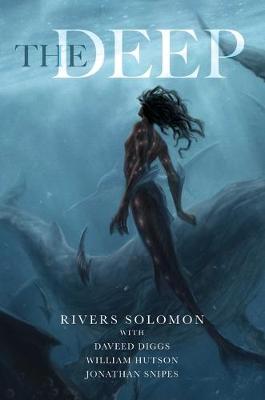"Inspired by a song produced by the rap group Clipping for the This American Life episode “We Are In The Future."
The Deep simply blew me away with its powerful prose and blend of history and fantasy. It's a story of memory and history, the individual versus the group, of identity, of pain and of hope. This is such a beautifully crafted and powerful story that I can't recommend enough.
"Forgetting was not the same as healing."Descended from pregnant African women thrown overboard from slave ships, the wajinru have no long-term memory, instead choosing to live in the moment without the burden of the past. It is the responsibility of their historian - Yetu - to hold the memories for them so they aren't lost, and once a year they have a ceremony to remember the history for a brief time. But the weight of the painful and traumatic memories consumes Yetu and threatens her life.
"Who was she outside of her relationship to her kin?"I adore stories that delve into concepts of identity, so it is no surprise that I was particularly taken with The Deep. Yetu's journey to save herself leads to an exploration of personhood. Who are we without our past? Can we find a balance between remembering the past and not being crippled by it? I found hope in the narrative and Yetu's journey.
"There were men, women, both, and neither. Such things were self-determined and Yetu wondered if two-legs had self-determination too."The world is casually LGBTQIAP+, which made me so incredibly happy. Suka uses they/them pronouns and the wajinru are described to be fluid in terms of sexual identity. Labels don't really seem to matter much and I appreciate that a lot.
Solomon's prose evokes powerful emotion and is captivating in its prose. Solomon did an amazing job, bringing to life the vast world imagined by Clipping's song of the same name. There is so much I can say about this novella but I think it is one best experienced with as little information as possible; I highly recommend this one, friends!
